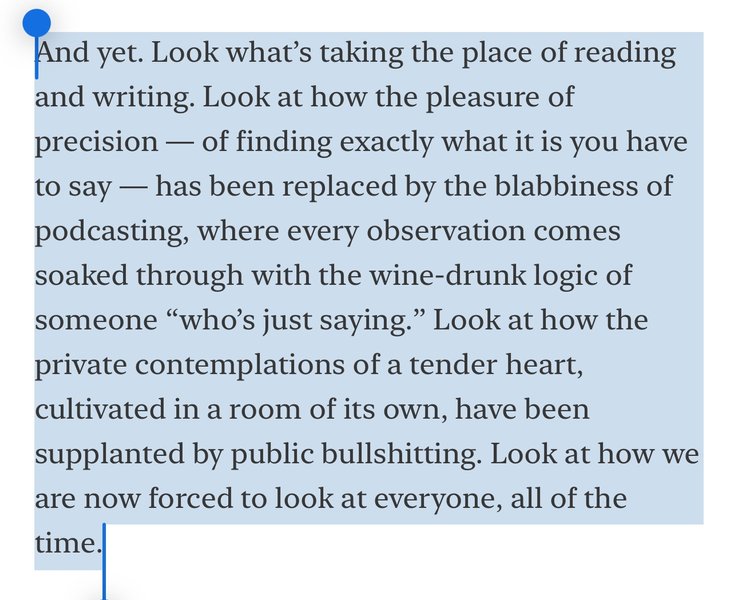Writing
To put the writing and speaking speeds into perspective, we form thoughts at 1,000-3,000 words per minute . Natural language might be natural, but it’s a bottleneck.
Julian • The Case Against Conversational Interfaces
15 rules for blogging, and my current streak
interconnected.org
The biggest thing about writing down strategic choices is that they serve to build a corporate history (over a year or two, not really thinking about decades). Why decisions are made is rather important because companies, like people, can make the same mistakes over time without history.
Steven Sinofsky • “Writing Is Thinking”—an Annotated Twitter Thread – Learning by Shipping
So here they are, my personal rules for blogging.
- Three posts a week, more or less.
- One idea per post. If I find myself launching into another section, cut and paste the extra into a separate draft post, and tie off the original one with the word “Anyway.” Then publish.
- No hedging, no nuance. If I’m getting in a twist about a sentence, take it out.
- Gi
15 rules for blogging, and my current streak
To come up with new ideas, you have to have space to be messy, to procrastinate, and to let your mind wander and free-associate. But there needs to be a balance. You eventually need to channel it into something concrete, or you won’t produce anything.
Dasha Nekrasova • Jon Rafman and Dasha Nekrasova on the Horror We Call Life
“A 5-step process for nearly anything:
1) Explore widely. Find out what is possible.
2) Test cheaply. Run small, quick experiments. Sample things.
3) Edit ruthlessly. Focus on the best. Cut everything else.
4) Repeat what works. Don't quit on a good idea.
5) Return to 1.”
1) Explore widely. Find out what is possible.
2) Test cheaply. Run small, quick experiments. Sample things.
3) Edit ruthlessly. Focus on the best. Cut everything else.
4) Repeat what works. Don't quit on a good idea.
5) Return to 1.”
jamesclear.com • 3-2-1: On Simplifying, a 5-Step Process for Nearly Anything, and Collaboration | James Clear

